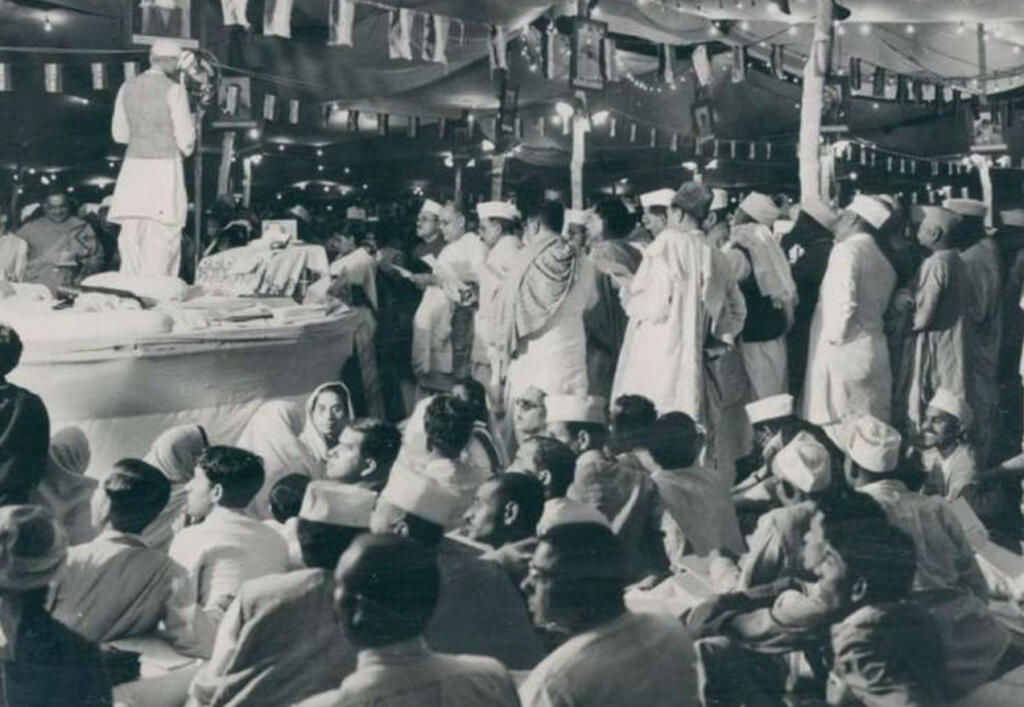I have a small history question. When do we celebrate Republic Day? January 26. Now, a trickier question- why did we adopt the Constitution of India on January 26, 1950, when it was prepared and ready on November 26, 1949. Well, this was a way to commemorate Poorna Swaraj, which was adopted by the Congress at its Lahore session on January 26, 1930.
So, you must have guessed by now that the declaration of Poorna Swaraj was central to the Indian independence movement. But what did it mean? For a broad understanding, it meant complete independence and effectively conveyed an explicit announcement that Indians want to throw the British government out of the country. Till the public declaration of Poorna Swaraj was made on January 26, 1930, Congress was demanding dominion status. So, it is worth exploring the history and timeline of Poorna Swaraj.
Congress in its early days demanded Dominion status
In its early days, the Indian National Congress (INC) wasn’t demanding independence from the British. Initially, it was formed as a platform for civil and political dialogue among educated Indians.
Read more: The real story of India’s Independence: Ch – 1 – Why was the Congress founded?
How Sri Aurobindo brought in the idea of Poorna Swaraj
Sri Aurobindo represented the extremist camp within the Congress during the 1900s. He represented the same ideology as the famous Lal-Bal-Pal trio, which refers to Lala Lajpat Rai, Bal Gangadhar Tilak and Bipin Chandra Pal.
Like other extremists, Sri Aurobindo perceived Swaraj as a natural right of the Indians. Extremists advocated complete independence from the British. Sri Aurobindo was the first person to talk about the goal of Poorna Swaraj in 1907. Writing about Swaraj in Bande Mataram, Sri Aurobindo declared, “We of the new school would not pitch our ideal one inch lower than aboslute Swaraj, self-government as it exists in the United Kingdom.”
He added that to strive for anything less “would be to insult the greatness of our past and the magnificent possibilities of our future.”
The 1921 session that gave momentum to Poorna Swaraj
In 1907, Sri Aurobindo had demanded complete independence from the British, but the demand wasn’t yet adopted by Congress.
But then in 1921, the demand for Poorna Swaraj again came up. The wounds of the imposition of the Rowlatt Act and the Jallianwala Bagh massacre were still fresh in the national psyche. So, in the 1921 Congress session at Ahmedabad, the demand came up before the Indian National Congress for the first time. Hasrat Mohani, a poet-politician, was the first Congressman to raise the demand of Poorna Swaraj from an all-India Congress forum.
Yet, the demand wasn’t immediately institutionalised by Congress. Ultimately, the National Cooperation Movement was also withdrawn following the Chauri Chaura incident and the Poorna Swaraj demand would next up only towards the late 1920s.
How revolutionary activity stimulated Poorna Swaraj
Again, in 1927, nationalist sentiment gathered momentum due to the exclusionary character of the Simon Commission. The death of India’s respected freedom fighter Lala Lajpat Rai during a lathi-charge by British police officials also angered Indian youth.
Thereafter, Bhagat Singh, Rajguru, Sukhdev and many other Hindustan Socialist Republican Association (HSRA) leaders pushed for independence from British rule. Their brave actions like throwing bombs in the Central Assembly Hall and shouting “Inquilab Zindabad!”, and holding a long hunger strike in jail mobilised sentiment against the British rule. The nation wanted freedom from British rule and would have settled for nothing less.
Congress publicly declared Poorna Swaraj on January 26, 1930
The courageous actions of youngsters like Bhagat Singh, and a growing national sentiment prompted younger leaders within the Congress like Subhash Chandra Bose to push for complete independence. And the younger leaders succeeded in their efforts.
On January 26, 1930, Congress publicly declared Poorna Swaraj, amidst growing anti-British rule sentiment. This was the first time that the party declared that it wanted to throw the British out of the country.
